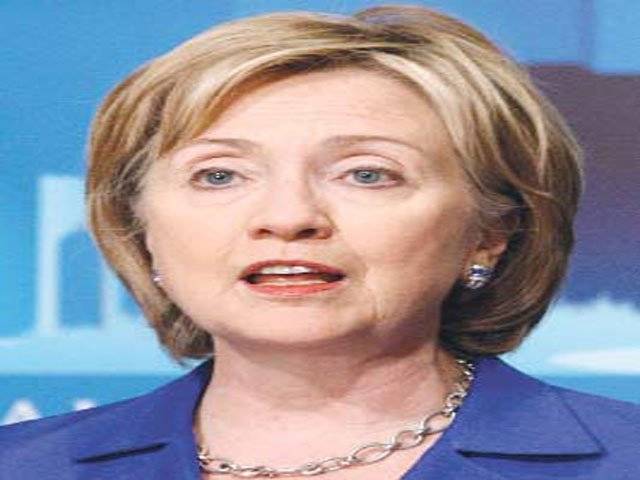WASHINGTON (Agencies) - The Central Intelligence Agency has no plans to suspend operations in Pakistan against terror suspects despite objections from leaders in Islamabad, a US official said Thursday. Pakistan has criticised missile strikes by US drone aircraft in the country but CIA Director Leon Panetta has told intelligence officials that he has a duty to prevent attacks on the United States, the senior official, who spoke on condition of anonymity, told AFP. Panetta has been clear with his Pakistani counterparts that his fundamental responsibility is to protect the American people, and he will not halt operations that support that objective, the official said. The CIA chief on Monday held several hours of talks at the agencys headquarters outside Washington with Lieutenant General Ahmad Shuja Pasha, the head of Pakistans Inter-Services Intelligence agency. US media had reported that Pasha and other officials told the United States to rein in drone strikes and slash the number of CIA agents and special forces operating in the nuclear-armed Muslim country. Apparently reflecting the CIA chiefs stance, American drones resumed missile attacks in Pakistan on Wednesday for the first time in a month. The unmanned aircraft fired four missiles at a vehicle in the South Waziristan district, striking a route used by Taliban and Al-Qaeda-allied militants who cross into Afghanistan to attack Nato-led troops, Pakistani officials said. It was the first missile strike since March 17, when Pakistans civilian and military leaders strongly protested over a US drone attack that killed 39 people, including civilians and police, in North Waziristan. Foreign ministry and Prime Minister Yousuf Raza Gilani both sharply criticised the latest bombing raid. Meanwhile, US Secretary of State Hillary Clinton would pay an official visit to Pakistan during the first half of next month to hold talks with countrys leadership in the backdrop of public reservations on release of US national Raymond Davis and its affects on relations between the two countries. The sources said the US was worried upon the hatred and resentment against it among the Pakistanis as it showed extra-ordinary pressure for the release and suspicious return of CIA contractor who gunned down two citizens in Qurtaba Chowk Lahore on Jan 27. The US leaderships worries have mounted after the various political parties have opened new war fronts against it and it has decided to send its Secretary of State to hold talks with leaders of different political parties. It should be mentioned that Pakistan is important US ally in war on terror and entire NATO supplies were transported via Pakistan. The sources further said that US Ambassador to Pakistan, Cameron Munter met Muttahida Qaumi Movement (MQM) Parliamentary Leader, Dr. Farooq Sattar to discuss the Raymond Davis issue. A US Embassy official had also called on Jamiat Ulema-e-Islam (JUI-F) Chief, Maulana Fazlur Rehman in this regard, a couple of days earlier. On the other hand, US has appointed its official Richard Hall Glad, as Deputy Chief of Mission with task to clarify the US position on Raymond Davis issue. Meanwhile, Hillary Clinton on Friday voiced understanding for talks with the Taliban as she mourned late diplomat Richard Holbrooke, an avid proponent of reconciliation in Afghanistan. At a memorial service, Clinton credited Holbrooke - who died unexpectedly at the age of 69 in December - with setting the troubled US relationships with Pakistan and Afghanistan on the right track as special envoy to the countries. Those who found negotiations with the Taliban distasteful got a very powerful response from Richard - diplomacy would be easy if we only had to talk to our friends, Clinton said at the American Academy in Berlin, which was co-founded by Holbrooke, a former ambassador to Germany. And negotiating with your adversaries wasnt a disservice to people who had died, if by talking you could prevent more violence, Clinton said. Holbrooke was seen as the main force in President Barack Obamas administration seeking a political deal in Afghanistan, despite calls by conservatives and the military to try to crush the Taliban insurgency. Obama has tripled the number of troops in Afghanistan to around 100,000 but his administration has also increasingly signaled it does not believe there is a military solution to the conflict. Clinton, while supporting the diplomatic push, made clear in talks Thursday with Nato foreign ministers that the United States would stay committed militarily in Afghanistan well beyond a July drawdown date originally set by Obama.
Thursday, April 18, 2024
CIA will not halt Pak operations

Large-scale plantations key to tackling climate change challenge
8:39 AM | April 18, 2024
Hepatitis Challenge
April 18, 2024
IMF Predictions
April 18, 2024
Wheat War
April 18, 2024
Cartoon
April 18, 2024
Rail Revival
April 17, 2024
Addressing Climate Change
April 17, 2024
Saudi Investment
April 17, 2024
Political Reconciliation
April 16, 2024
Pricing Pressures
April 16, 2024
Justice denied
April 18, 2024
AI dilemmas unveiled
April 18, 2024
Tax tangle
April 18, 2024
Workforce inequality
April 17, 2024
New partnerships
April 17, 2024
ePaper - Nawaiwaqt
Advertisement
Nawaiwaqt Group | Copyright © 2024





